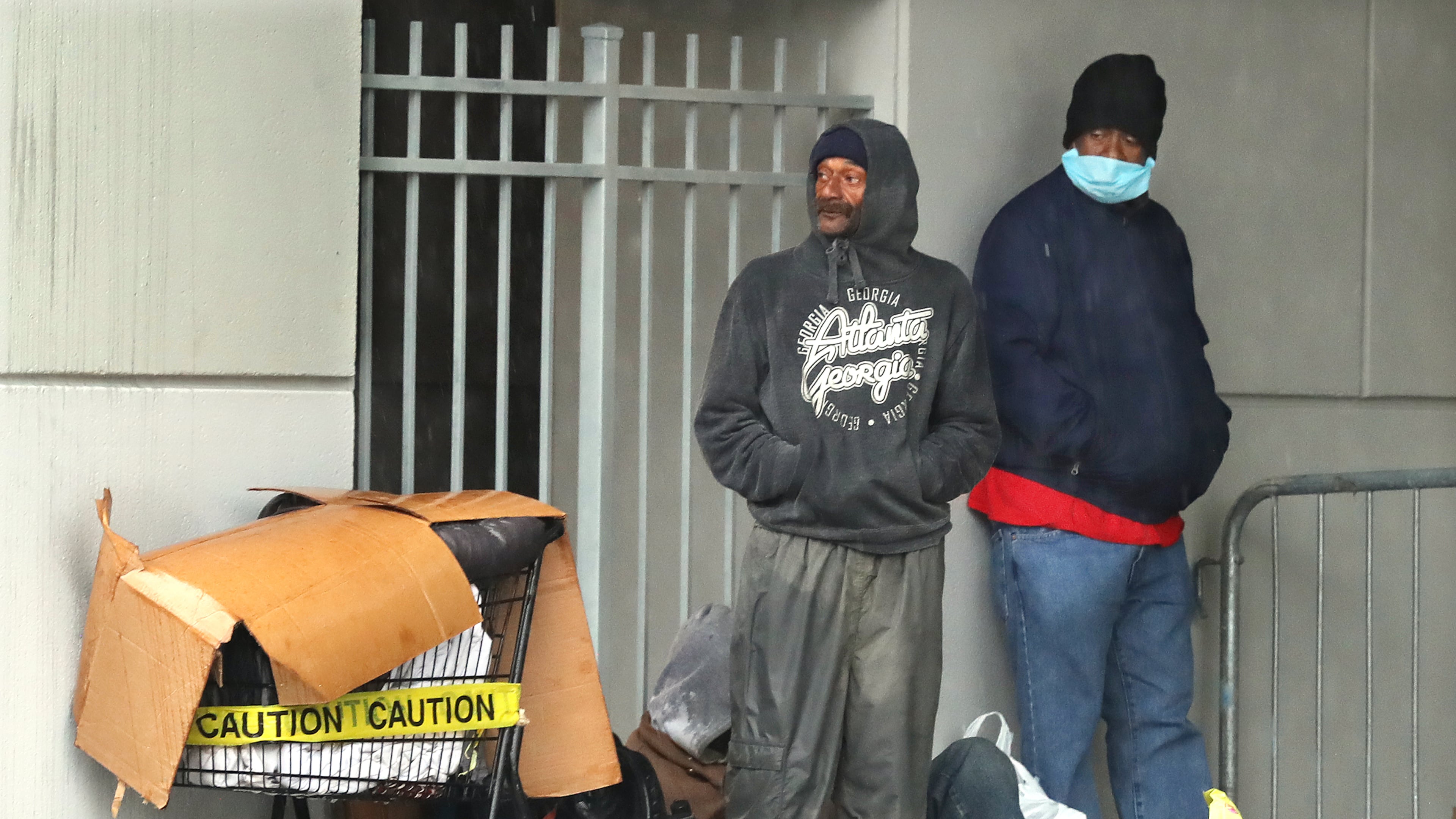Homeless shelters ramp up testing to stave off spread of virus

As coronavirus cases rise in Georgia, testing has been ramped up at Atlanta’s homeless shelters to quickly identify individuals who have the virus and prevent it from spreading.
While the testing has helped shelters identify and get treatment for residents who have coronavirus or the disease it causes, COVID-19, so far there seems to be no organized method of tracking the virus in the homeless population.
As of Monday evening, 35 people had tested positive for the virus in Atlanta homeless shelters, including nine staffers, according to Partners for Home executive director Cathryn Marchman. Partners for Home is a nonprofit the city created to provide homelessness services. That number could increase as unsheltered homeless residents were tested for the virus this weekend, Marchman said. A little more than 2,000 tests have been done at the shelters.
The Department of Public Health tracks the number of COVID-19 cases and deaths in the state, but does not specifically track those of homeless residents, a spokeswoman said. She suggested The Atlanta Journal-Constitution contact Atlanta Mayor Keisha Lance Bottoms, who chairs the homeless committee for Gov. Brian Kemp’s coronavirus task force.
RELATED COVERAGE:
A spokesman for Bottoms has not responded to an email asking if the task force is keeping a count of the number of homeless residents with COVID-19.
Partners for Home asked hospitals to provide any data they collect on homeless residents treated. However, the agency “is not getting a comprehensive report from hospitals at the moment,” Marchman said.
For now, shelters track those who test positive for the virus and report the information to Partners for Home and the Fulton County Board of Health. Marchman said the number has been low so far.
“Right now, I think the conclusions we can draw are few,” Marchman said. “One is that our shelters were vigilant early on to get people to social distance in a very effective way.”
Atlanta has an estimated 3,000 homeless people, according to the National Alliance to End Homelessness.
Since the outbreak began, Fulton County and Partners for Home increased their outreach efforts at outdoor homeless camps. Testing for those unsheltered residents began this past weekend and is expected to continue this week, Marchman said.
There are roughly 20 independent homeless shelters in Atlanta. One of the city's largest shelters, Gateway Center, has 482 beds at its two facilities and reports it has been at full capacity during the pandemic.
Testing began two weeks ago at the Gateway shelters, which found 10 people positive for the virus, most of which had no symptoms of illness, CEO Raphael Holloway said. Atlanta Mission, which has 600 homeless residents staying at their three shelters combined, had only one positive for the virus, spokeswoman Rachel Reynolds said.
“We’re basically trying to get on the front end of this and get as many positive cases out of our conjugate living situations so that they’re not spreading the virus,” said Tom Andrews, President of Mercy Care, who is leading the testing at shelters in Fulton County, including Atlanta.
Testing at the shelters is pretty simple: residents fill out a registration form and are given a nose swabbed exam. The process generally lasts no more than five minutes.
Homeless people who tested positive for the virus have been moved to an isolation hotel in downtown Atlanta, where 43 people are now housed, Marchman said. The Georgia Department of Public Health leases the hotel to provide safe shelter for homeless residents who have coronavirus or who have symptoms of the virus and are quarantined, awaiting test results.
Fulton County’s Chief Clinical Officer David Holland urged people to remain steadfast in their social distancing efforts. “A lot of this is about finding people who have COVID-19 and giving them a place to isolate,” he said.
Fulton County Board of Health along with Mercy Care have been testing at smaller shelters in the county, which includes Atlanta. How long the testing will last remains uncertain.
“We’ve got to decide on that; it depends on how things progress on the epidemic, which determines how our follow up testing strategies will be,” Holland said. “We’re still discussing that with Mercy Care.”


